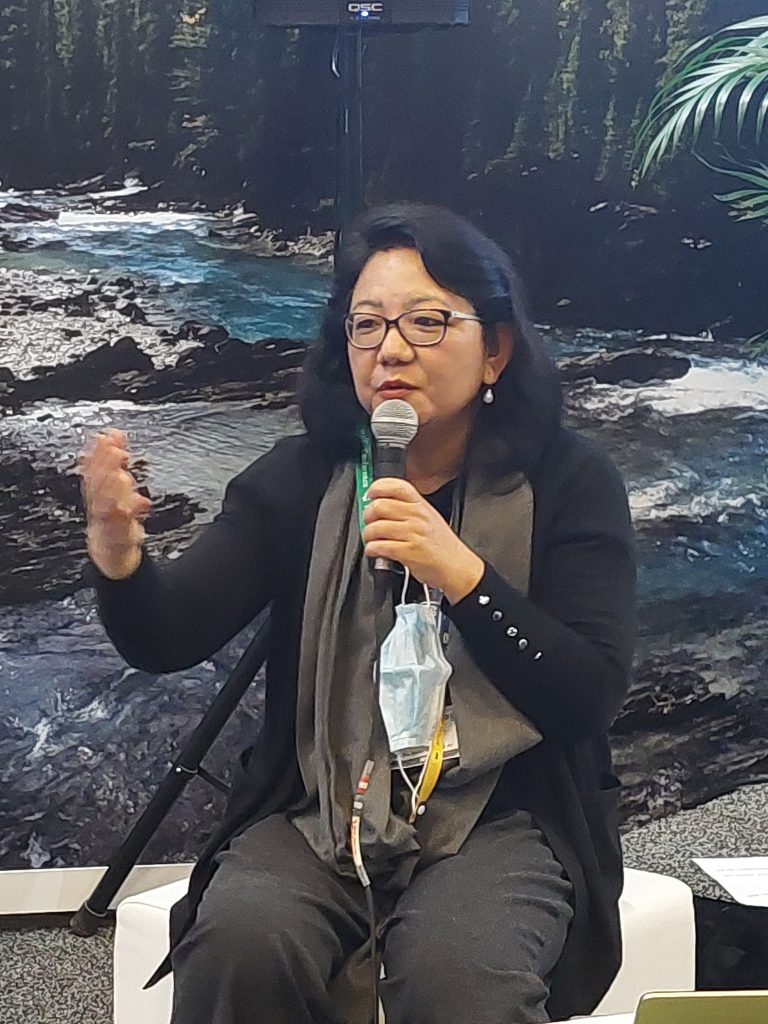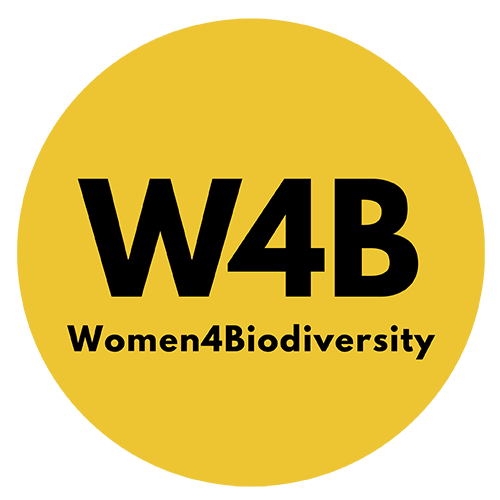TEXT BY SHARON NYAMBURA RUTHIA, PREVIOUS POLICY TEAM INTERN
Women4Biodiversity held the Gender Equality and Social Inclusion (GESI) orientation at the Women’s Hub during the Fifteenth Meeting of the Conference of Parties to the Convention of Biological Diversity (CBD COP 15) in December 2022. This was to advance awareness on gender equality and human rights in line with a gender-responsive global biodiversity framework.
The session was facilitated by Sara Subba, an advisor of the UNCBD Women’s Caucus and a member of the team that developed the GESI operational framework for the International Development Parts Group (IDPG) in Nepal.
GESI is important in the actualization of the three objectives of the CBD: the conservation of biological diversity; the sustainable use of the components of biological diversity; and the fair and equitable sharing of the benefits arising out of the utilization of genetic resources.
The discussion was informal and relaxed, with Sara encouraging participants to share their experiences and the stories they know about women’s roles, unpaid work in the household, and lack of opportunities.
All through the open discussions, the participants highlighted some examples such as mothers caring for and teaching their children, cleaning the house, preparing and cooking food every day, and accompanying their spouses. While women play these significant roles at the basic structure of society, more often than not these roles are sidelined and their effect on the family and community is downplayed. Despite all their contributions, women still get exposed to historical injustices such as gender-based violence, lack of access to resources, inadequate representation in decision-making bodies and limited decision-making power, and increased vulnerability to the impacts of biodiversity loss and degradation and climate change, which results in food insecurity and poverty.
It is because of these historical gender inequalities and injustices that the principle on Gender Equality and Social Inclusion (GESI) came about. During the session, Sara took the participants through the different concepts of the GESI principle. The “Gender” in GESI is the of different social attributes and opportunities associated with being male or female and the relations that exist between the two.

As a result of these differentiations, gender inequality resulted in social, economic and natural imbalances and exclusions. Social exclusion describes the experience of groups who are systematically and historically disadvantaged because they are discriminated against on the basis of their income, caste, gender, ethnicity, disability or religion or an overlapping combination of these.
And in order to bring a halt to gender inequality, the aspect of social inclusion was introduced to deal with these institutional barriers and the enhancement of incentives to increase the access of diverse individuals and groups to development opportunities. Therefore, the GESI principle is basically a process and strategy for ensuring the concerns of women and men from all social groups (ethnicity, caste, economy, age, disability, geographic locations) as an integral dimension in the design, implementation, monitoring and evaluation of policies and programs in all political, economic and social spheres.
The foundational basis of this principle is that no one gets left behind and to go after the most difficult-to-reach groups, who often face not only poverty but disadvantages related to location, language, sex, gender identity, sexual orientation, physical or mental ability, caste, ethnicity, or age. An analysis of the GESI principle brings out the perspective on the people who are excluded and the reasons behind their exclusion, how the policies and programmatic response to address these exclusions and the strengths and gaps of the responses to address the barriers.
While there are many things that have historically divided us like geography, gender, age, ethnicity and ability, among other things, there are still some that unites humanity such as targeted information, collective capacity, inclusive institution, unified planning, participatory decisions, user-friendly facilities and equity in access to resources and benefit sharing from whatever way in which genetic resources are accessed and used maximizes the benefits for users, providers, and the ecology and communities where they are found.


